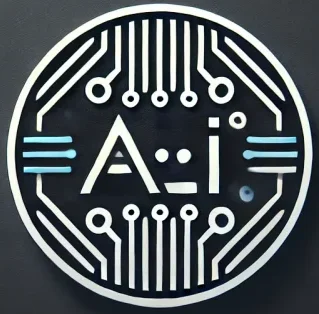# Exploring the Rise of AI in Personalized Medicine: A Game Changer in Healthcare
In the fast-evolving world of healthcare, a revolutionary trend is making waves—Artificial Intelligence (AI) in personalized medicine. This groundbreaking approach is tailor-making treatments and preventive strategies that are uniquely suited to individual patients, marking a significant shift from the traditional one-size-fits-all healthcare model. The implications are profound, promising more effective treatments with fewer side effects, and a new era in medical care.
### **What is Personalized Medicine?**
Personalized medicine, also known as precision medicine, involves using AI to analyze vast amounts of medical data—ranging from genetic information to lifestyle details—to tailor medical care to individual patients. This method ensures that patients receive the most appropriate treatments based on their unique biological makeup.
### **Real-World Applications of AI in Personalized Medicine**
The implementation of AI in personalized medicine is already showing promising results across several areas:
– **Genetic Testing and Analysis:** AI algorithms help in deciphering massive datasets of genetic information to predict disease risk and suggest preventive measures. For instance, companies like 23andMe use AI to provide genetic testing services that can inform individuals about their susceptibility to certain diseases.
– **Drug Development:** AI is accelerating the drug development process by predicting how different drugs can affect various genetic profiles. This not only speeds up the creation of effective drugs but also reduces the cost and failure rate of clinical trials.
– **Treatment Customization:** AI tools analyze previous treatment outcomes and ongoing research to recommend personalized treatment plans. Oncology departments, for example, are using AI to determine the most effective cancer treatment protocols for patients based on their genetic markers.
– **Remote Patient Monitoring:** With AI, wearable devices can continuously collect and analyze patient data, providing real-time adjustments in treatment plans and early warnings about potential health issues.
### **Benefits of AI in Personalized Medicine**
– **Increased Efficacy of Treatments:** By targeting the unique genetic makeup of individuals, treatments are more effective and have fewer side effects.
– **Cost Reduction:** AI can predict which treatments are most likely to be effective for a patient, reducing the trial-and-error approach in medicine that often leads to higher costs.
– **Early Disease Detection:** AI can identify patterns that may indicate the onset of a condition long before traditional symptoms appear, allowing for earlier intervention.
### **Challenges and Ethical Considerations**
Despite its benefits, the integration of AI in personalized medicine is not without challenges:
– **Data Privacy:** Handling sensitive genetic and health information raises significant privacy concerns. Ensuring data protection is paramount to gain trust and wider acceptance.
– **Accessibility:** There is a risk that these advanced treatments might be available only to those who can afford them, potentially increasing healthcare disparities.
### **The Future of AI in Personalized Medicine**
Looking ahead, AI is set to transform the healthcare landscape even more profoundly:
– **Integration with Other Technologies:** AI will likely integrate more seamlessly with other technologies, such as VR for training and AR for surgery assistance.
– **Expansion into Mental Health:** AI could personalize mental health treatments, possibly predicting episodes before they happen based on data trends.
– **Global Health Impact:** As AI technology becomes more affordable and widespread, its impact could expand globally, offering personalized medicine solutions in underdeveloped regions that traditionally suffer from a lack of resources.
### **Conclusion and Call to Action**
The integration of AI in personalized medicine is not just a trend; it’s a transformative movement that is reshaping the future of healthcare. As we stand on the brink of this new era, it is crucial for healthcare providers, policymakers, and technology developers to collaborate and ensure that the benefits of AI-driven personalized medicine are accessible to all.
For those intrigued by the potential of AI in healthcare, staying informed about the latest developments and supporting policies that promote ethical AI practices is essential. Let’s embrace the change and contribute to a healthier, more personalized future.

